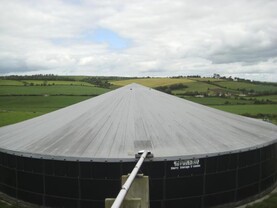The European Commission last week announced a raft of measures aimed at taking the financial burden off farmers in what has been a difficult year.
As part of the measures farmers will be able to receive their direct and rural development payments in advance and will be granted more flexibility to use land that would normally not be used for production, in order to feed their animals if their Government decides to implement these measures.
Two specific decisions have been taken to help farmers deal with droughts, in addition to support under the existing Common Agricultural Policy legislation.
The first sees higher advance payments of up to 70% of direct payments and 85% of payments under rural development already as of mid-October instead of waiting until December, in a bid to improve farmers’ cashflow situation.
It is yet to be seen if this will change the way that Scottish payments will be made.
What could benefit Scotland is the announcement that there will be derogations from specific greening measures.
These include crop diversification and ecological focus area rules on land lying fallow, to allow such and to be used for the production of animal feed.
Consideration is also being given to the adoption of further derogations to greening to allow farmers more flexibility to produce fodder.
Existing support
There is already an existing support mechanism that the Government could implement to support struggling farmers. However, it looks extremely unlikely that it will be used.
Under existing agricultural state aid rules, aid of up to 80% of the damage caused by drought can be provided, subject to certain specific conditions.
The purchase of fodder can qualify for aid as either material damage or income loss.
Compensation for damage can also be granted without the need to notify the Commission. Member states may grant aid of up to £13,425 (€15,000) per farmer over three years.
With regard to Rural Development, a range of possibilities is provided for in the current CAP legislation, including where a member state recognises the drought situation as a ‘natural disaster’.
It may then provide support of up to 100% for the restoration of agricultural production potential damaged by the drought. The money can be used for investments such as the re-seeding of pastures for example. This measure can be activated retroactively.
Monitoring
Speaking on the announcement by the commission, a Scottish Government spokesperson said: “The current situation is being closely monitored by the Agricultural Weather Advisory Panel, which continues to meet and acts as a taskforce for rapidly sharing information, best practice and encouraging co-operation across the industry to help farmers and crofters respond effectively to issues like challenging weather conditions, both in the short term and in building longer term resilience.
“We have also held discussions with the industry, specifically on fodder and straw supplies and continue to encourage farmers and crofters to plan ahead and act collaboratively, where possible.”






 This is a subscriber-only article
This is a subscriber-only article










SHARING OPTIONS: